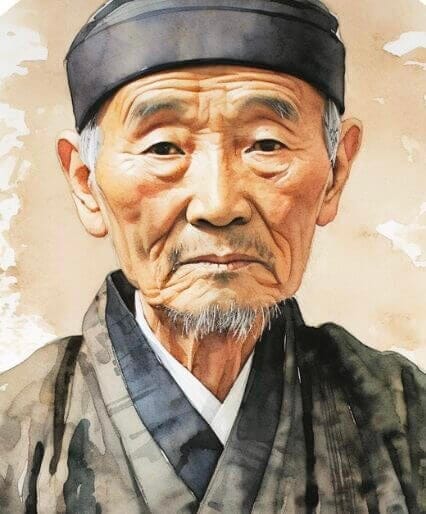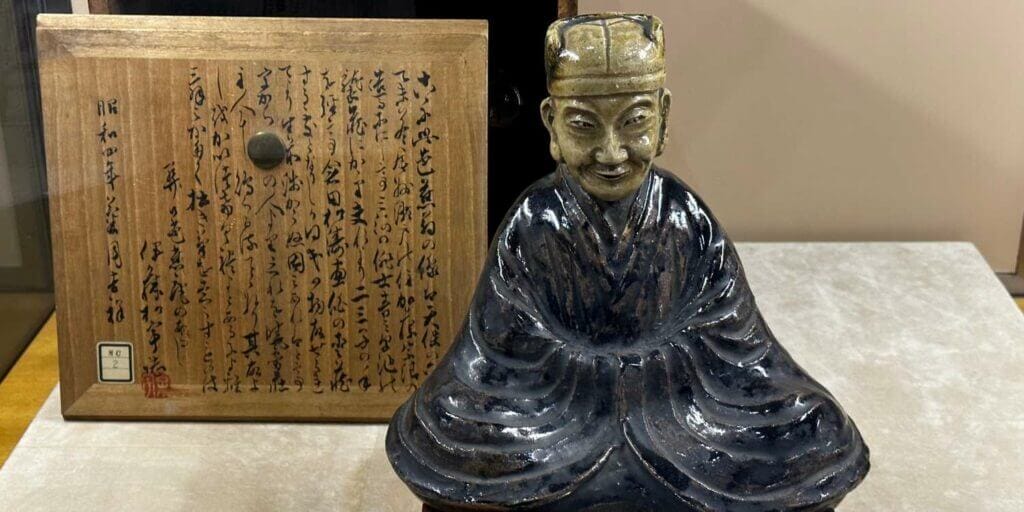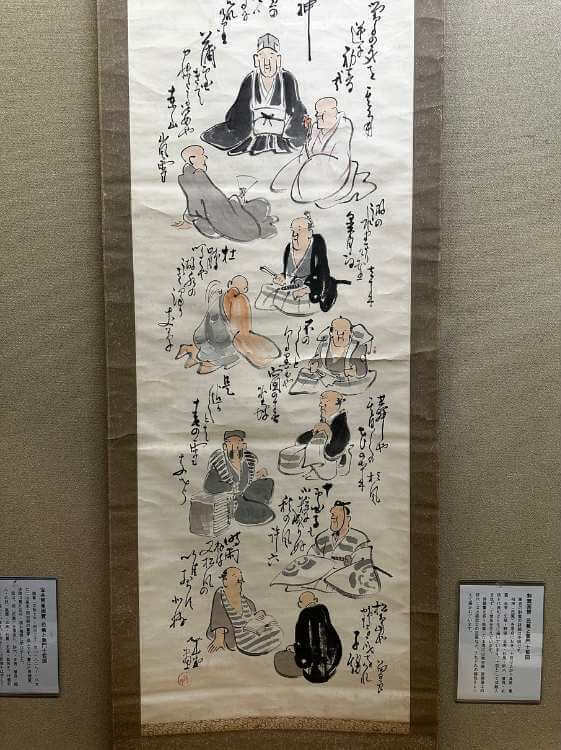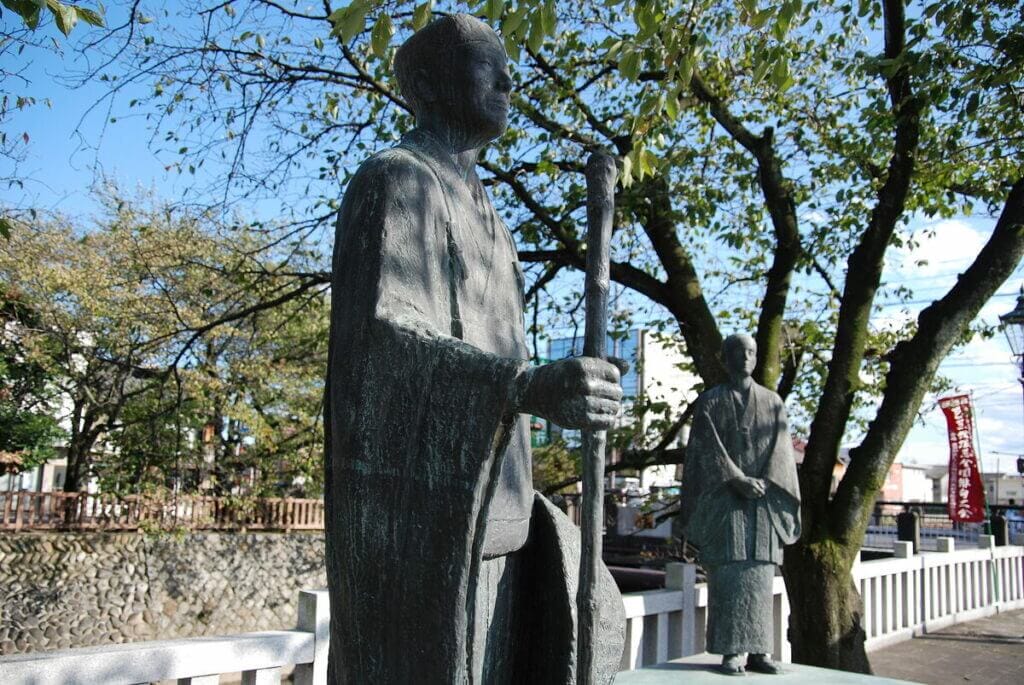Bashō’s poetic works beautifully capture the essence of nature and reflect profound insights into the human experience.
Bashō’s haiku poems are celebrated for their simplicity and ability to encapsulate a single moment in time. His compositions often revolve around the natural world, expressing both its beauty and depth. One of Bashō’s unique qualities is his profound sensitivity and empathy for all living beings, which is evident in his writings.
Life Facts
- Matsuo Bashō was born in 1644 in Ueno, in the Iga Province.
- His birth name was Matsuo Kinsaku.
- He studied Zen Buddhism.
- His pen names included: Sōbō (宗房), Tōsē (桃青), and Bashō (芭蕉)
Interesting Facts
- He wrote numerous haiku during his lifetime, leaving behind a significant body of work.
- His pen name, Bashō, means “banana tree.”
- He lost his mother at a young age.
- Bashō was known for his profound empathy and compassion towards all forms of life.
- He has many disciples devoted to studying his style of poetry.
Famous Poems by Matsuo Bashō
- ‘The old pond’ – This iconic haiku by Bashō captures the simplicity and profundity of a single moment as a frog jumps into a still pond, creating ripples.
- ‘In Kyoto’ – a poem that expresses the poet’s longing to spend time in Kyoto.
- ‘In the twilight rain’ – a beautiful haiku that depicts the rain and a bright hibiscus flower.
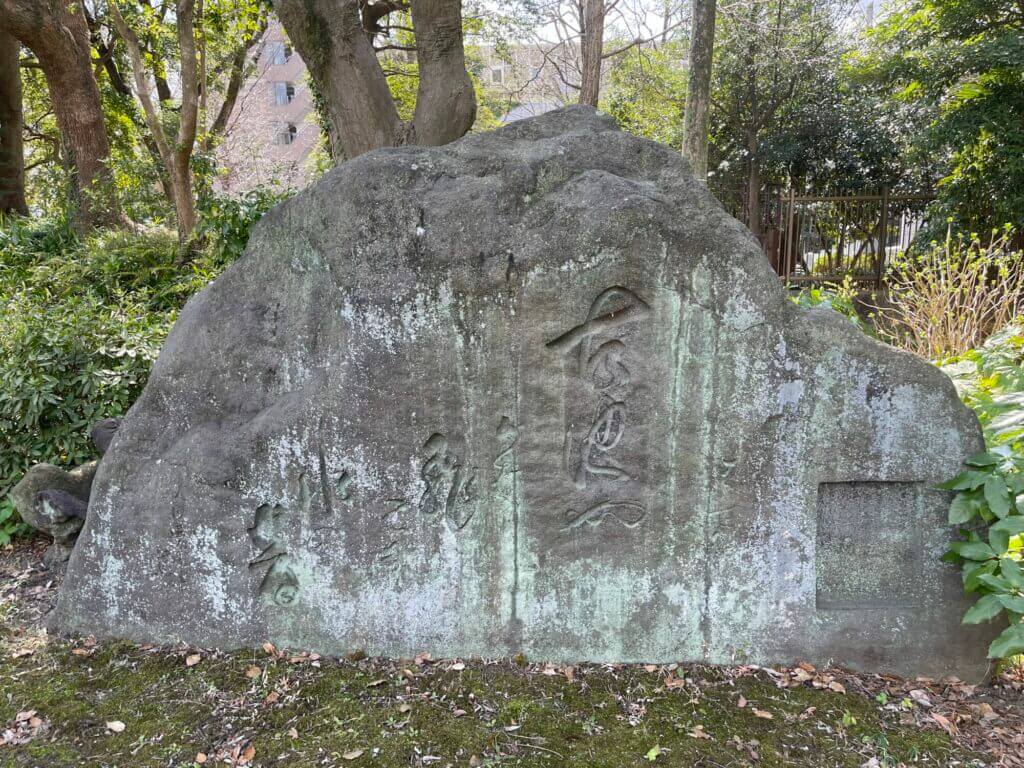
Early Life
Bashō was born into a samurai family and grew up in a political and social upheaval time. Despite his privileged background, he chose a different path, dedicating himself to the arts and poetry.
From an early age, he received a classical education and developed a deep appreciation for literature and the natural world. When he was a teenager, it’s believed he served as a kitchen worker and as a servant to Tōdō Yoshitada.
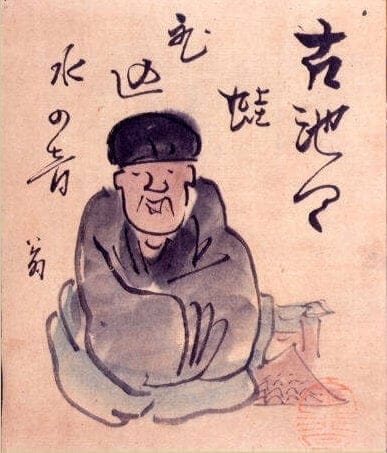
Career
Bashō began his career as a poet during the Edo period, where he embarked on numerous travels across Japan around 1672.
These journeys greatly influenced his poetry, as he drew inspiration from the landscapes, people, and culture he encountered. Bashō’s works display a delicate balance between introspection and observation of the external world.
His most renowned collection of written works, “The Narrow Road to the Deep North,” documents his travels and exemplifies his poetic prowess. Bashō’s haiku poems are characterized by their brevity, vivid imagery, and ability to evoke emotions and provoke contemplation in the reader.
Beyond his haiku and travel writings, Bashō also composed haibun, a combination of prose and haiku. His haibun often featured vivid descriptions of natural scenery and poignant reflections on life. Through these writings, he expanded the possibilities of haiku as a medium for storytelling and contemplation.
Bashō’s contributions to haiku extended beyond his own work. He also established a haiku tradition known as the Bashō school, which emphasized simplicity, clarity, and the use of natural imagery. This school became highly influential and shaped the development of haiku poetry in subsequent generations.
Throughout his career, Bashō remained dedicated to refining his craft and pushing the boundaries of haiku. His poems were characterized by their economy of language, profound insights, and ability to evoke deep emotions and contemplation in readers.
Bashō’s impact on Japanese literature and poetry cannot be overstated, and his legacy as a master of haiku continues to inspire and resonate with poets and readers worldwide.
Later Life and Death
In his later years, Bashō attained great recognition and respect for his contributions to haiku poetry. He passed away on November 28, 1694, at the age of 49 or 50, leaving behind a profound legacy that continues to resonate with readers worldwide.
Legacy
Matsuo Bashō’s legacy lies in his immense contributions to Japanese poetry, particularly haiku. His ability to capture the essence of a moment and express profound truths through simple, evocative language set him apart as a master of the craft.
Bashō’s works continue to inspire poets and enthusiasts of haiku, securing his position as one of the greatest literary figures in Japanese history.
FAQs
One of the most famous haiku by Matsuo Bashō is ‘The old pond.’ It reads: “The old pond— / A frog jumps in, / Sound of water.”
Haiku poetry aims to distill a fleeting moment or emotion into a concise and vivid expression. With just a few words, haiku captures the essence of an experience, often in relation to the natural world. It encourages mindfulness, contemplation, and a deep appreciation for the present moment.
The pen name “Bashō” means “banana tree” in Japanese. It symbolizes Bashō’s desire for simplicity, rootedness, and the ability to bend without breaking, much like the resilient banana tree.
Matsuo Bashō revolutionized haiku poetry by elevating it to a profound and introspective art form. His use of natural imagery, delicate language, and deep insights into the human condition expanded the possibilities of haiku and influenced generations of poets.
Some of the many poets who were inspired by Bashō include: Kobayashi Issa, Yosa Buson, Masaoka Shiki, Santoka Taneda, and modern poets like Jack Kerouac.
